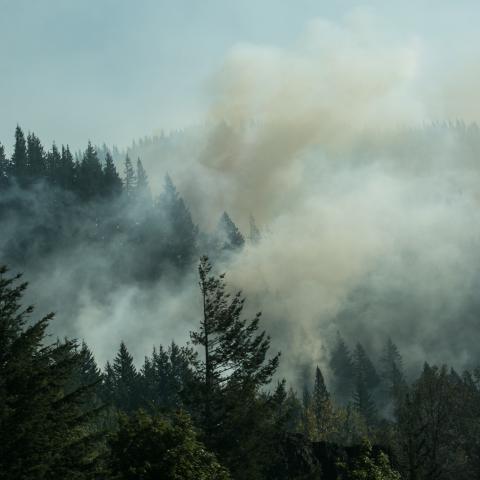Protect Your Pets From Wildfire Smoke
Your pets can be affected by wildfire smoke. If you feel the effects of smoke, they probably do, too! Smoke can irritate your pet’s eyes and respiratory tract. Bring your pets inside, and closely watch them during all periods of poor air quality.
Know the Signs
If your animals have any of these signs, call your veterinarian:
- Coughing or gagging
- Red or watery eyes, nasal discharge, inflammation of throat or mouth or reluctance to eat hard foods
- Trouble breathing, including open-mouth breathing, more noise when breathing, or fast breathing Fatigue or weakness, disorientation, uneven gait, stumbling
- Reduced appetite or thirst
Recommended Actions
Even if the fire danger is not imminent, high levels of smoke may force you to stay indoors for a long time or even to evacuate. Reduce your pet’s exposure to smoke as you would reduce your own.
To Prepare
- Whether you have a central air conditioning system or a room unit, use high efficiency filters to capture fine particles from smoke.
- Think about creating a clean room in your house with a portable air cleaner.
When smoke is present
- Keep pets indoors as much as you can, with doors and windows closed.
- Bring outdoor pets into a room with good ventilation, like a utility room, garage, or bathroom. Move potentially dangerous products, such as pesticides, out of the reach of pets.
- Smoke is especially tough on your pet birds. Keep them inside when smoke is present.
Keep indoor air clean
- Do not fry or broil foods, vacuum, burn candles, use a fireplace or woodstove, or smoke tobacco products. These activities add particles to your home.
- Spend less time outdoors and limit physical activities when it is smoky. For example, when it’s smoky, it’s not a good time for you and your pet to go for a run.
- Let dogs and cats outside only for brief bathroom breaks if air quality alerts are in effect.
Related Content
(Source: US Environmental Protection Agency Smoke Factsheet)

Smoke rising from the 2017 Eagle Creek Fire

Brown Queen, a cat adopted in December 2019, peers through a door window of her home. Photo Credit: Erin H., adopter